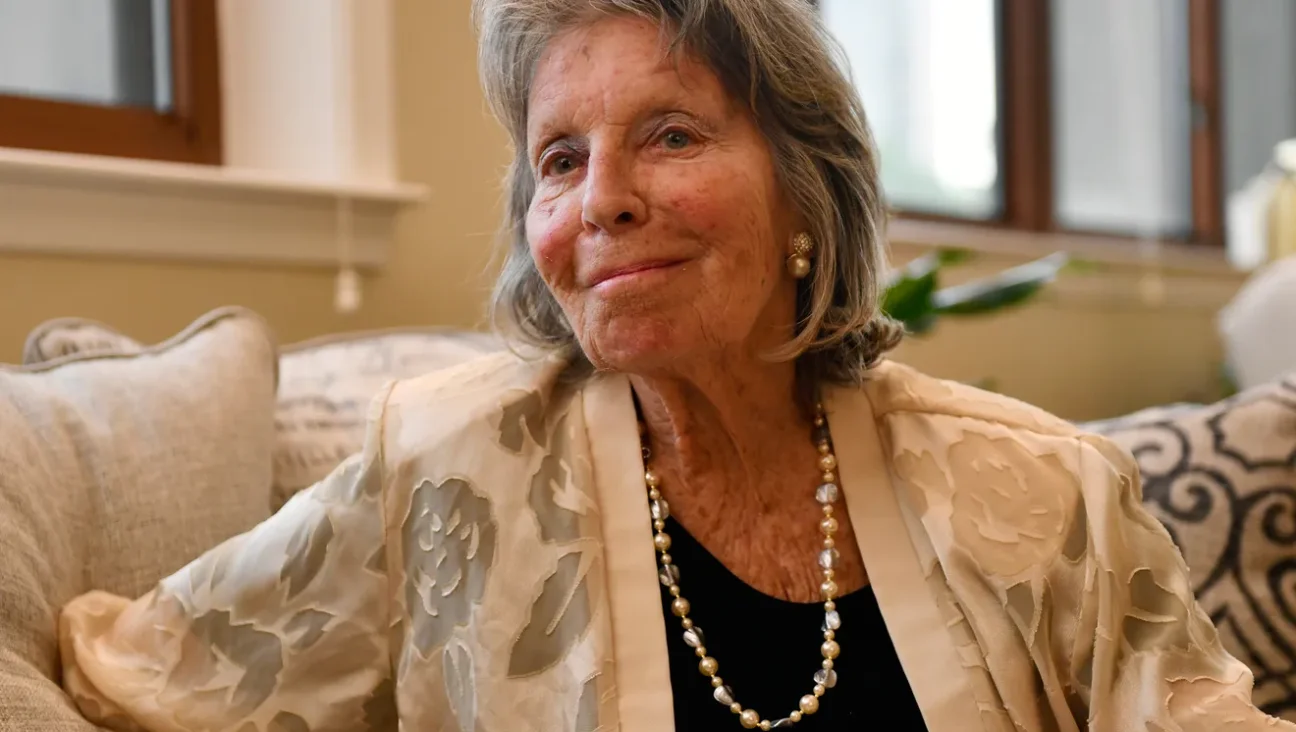GOPers Seek To Derail Reform Shuls’ Iraq Pullout Resolution
Jewish Republicans are mounting a campaign to derail a resolution, proposed by leaders of the country’s largest synagogue movement, opposing President Bush’s troop surge in Iraq and calling for a timetable for an American withdrawal.
The Reform movement’s 80-person executive committee has slated the resolution for consideration at its March 12 meeting. Last week, in a March 1 e-mail alert, the Washington-based Republican Jewish Coalition urged its members to participate in an electronic and phone campaign targeting the Union for Reform Judaism, which represents more than 900 Reform congregations.
“It is vital that each of us do all we can to keep our civic and faith organizations from being hijacked by politically motivated efforts to undermine the War on Terrorism,” the RJC wrote. “If you or someone you know is a member of the Reform movement, you should know that the movement’s leadership is pushing… to adopt a dangerous and wrongheaded resolution opposing the U.S. efforts in Iraq.”
Although a recent study by the Gallup Organization found that 77% of American Jews think the Iraq War was a mistake, most Jewish organizations have avoided speaking out against the war, and at times they have displayed support for the administration. Earlier this month, the Iraq issue was low on the agenda at the plenum of the Jewish Council for Public Affairs — the community’s main public policy coordinating body, which is made up of the major synagogue movements, several prominent national organizations and 122 local Jewish federations.
The Reform movement — America’s most liberal and activist denomination, as well as its most populous — has come under pressure from both the right and left as it has waded into the Iraq issue. In 2005, Jewish anti-war activists, led by the Philadelphia-based Shalom Center, criticized the URJ’s silence on the war and launched a campaign urging the organization to adopt an anti-war stance at its biennial conference in Houston. Despite some last-minute Republican opposition to a proposed anti-war resolution, the Reform rank and file approved the measure, which called for a reduction of troops in Iraq and for the adoption of a “clear exit strategy” for the war.
Since the new, stepped-up anti-war resolution was released to congregations across the country in mid-February, the URJ has received dozens of phone calls and e-mails from members both for and against the measure, Reform officials said.
According to URJ spokeswoman Emily Grotta, the URJ had received about 110 e-mails, split evenly for and against withdrawal, before the RJC launched its campaign last week. Grotta said her office received a flurry of opposition calls March 1, when the RJC first sent out its action alert, but few calls since.
The RJC’s executive director, Matt Brooks, told the Forward that “close to a dozen” people are spearheading grass-roots opposition among Reform members, but none would speak with the Forward on the record. One vocal critic of the URJ’s proposed resolution is Newsweek columnist and Reform Rabbi Marc Gellman.
“My most profound moral dispute with the resolution is the fact that there is not a single word in it about what will happen to the people we leave behind,” Gellman told the Forward. “There should be some acknowledgement that our withdrawal from Iraq will produce a bloodbath and a power vacuum in which thousands, perhaps even millions, will be killed, or tortured or oppressed in a horrible way.”
Rabbi David Saperstein, director of the movement’s Religious Action Center, said he is concerned about the Iraqis and believes there “may be more chaos” if American forces remain.
Despite the uncertainties, Jewish groups — even those that may disagree with the URJ — have a responsibility to weigh the facts and speak out on the issue, Saperstein said.
“I think it is not enough to talk in moral abstracts,” Saperstein told the Forward. “Three-thousand years of the Jewish prophetic tradition have mandated that we apply those moral abstracts to the very real challenges that face our nation and humanity, and we make the best judgment that we can.”
A message from our Publisher & CEO Rachel Fishman Feddersen

I hope you appreciated this article. Before you go, I’d like to ask you to please support the Forward’s award-winning, nonprofit journalism so that we can be prepared for whatever news 2025 brings.
At a time when other newsrooms are closing or cutting back, the Forward has removed its paywall and invested additional resources to report on the ground from Israel and around the U.S. on the impact of the war, rising antisemitism and polarized discourse.
Readers like you make it all possible. Support our work by becoming a Forward Member and connect with our journalism and your community.
— Rachel Fishman Feddersen, Publisher and CEO




















